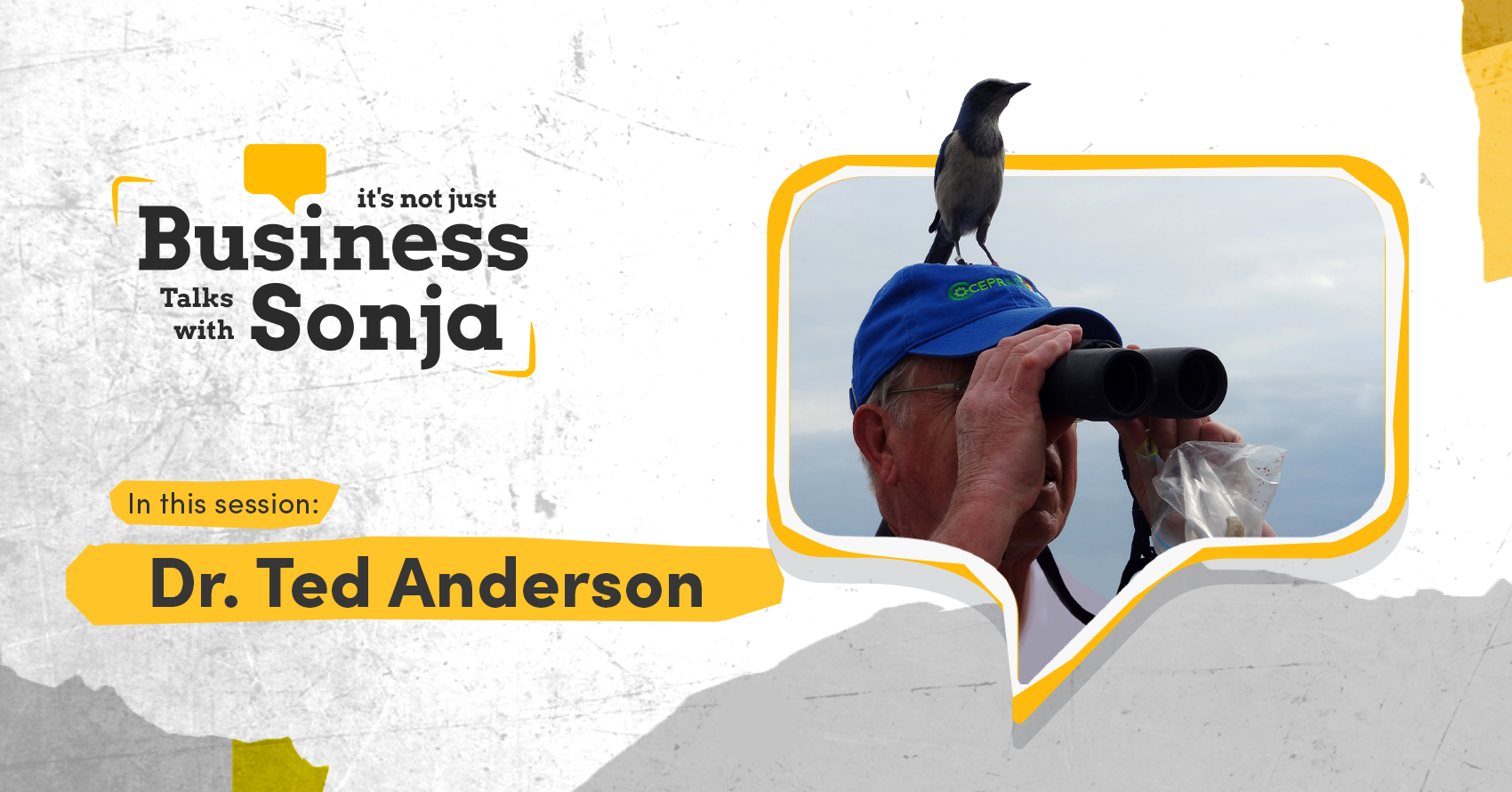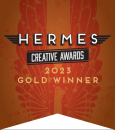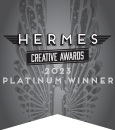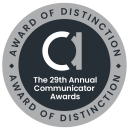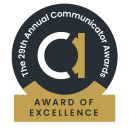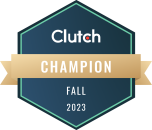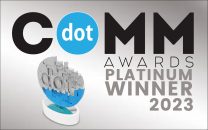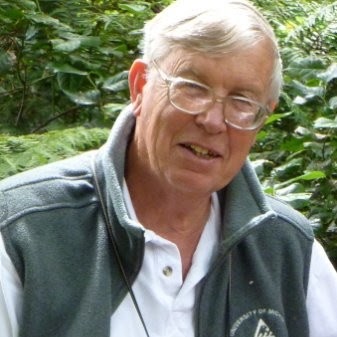
Dr. Ted R. Anderson earned a BA in zoology from the University of Kansas and a PhD in biology from Saint Louis University. His primary research interests are community ecology and the reproductive biology of the House Sparrow. He retired in 2004 after teaching for 32 years at McKendree University as a Professor of Biology.
Dr. Anderson is the author of two books, Biology of the Ubiquitous House Sparrow: From Genes to Populations (2006) and The Life of David Lack: Father of Evolutionary Ecology (2013). In 2014, he wrote a series of 53 weekly articles for the Bainbridge Islander entitled “A Year of Birding in Bloedel.”
Here’s a glimpse of what you’ll learn:
- Dr. Ted R. Anderson shares how he fell in love with ornithology and biology
- How does Dr. Anderson find space for both his scientific and religious beliefs?
- Why Dr. Anderson chooses to continue his religious faith even when he doesn’t have all the answers
- Dr. Anderson explains the philosophy of science
- Dr. Anderson shares one of his favorite parables from the Bible: the Good Samaritan
In this episode…
Most people think that religion and science are polar opposites. In fact, fewer than 10% of scientists profess to have religious beliefs. Is it possible for them to intertwine?
According to accomplished biologist Dr. Ted R. Anderson, it’s not easy, but it’s possible. His journey to reconcile faith and science has had its ups and downs. He even completely turned away from his faith at one point. Why did he return to his belief? Dr. Anderson realized his life wasn’t going so great. But when he returned to his faith, the Jesus story put a whole new spin on his life. Even though he didn’t have all the answers, Dr. Anderson learned that you don’t need to know everything to be a Jesus-follower.
In this episode of It’s Not Just Business Talks with Sonja, Sonja Anderson sits down with Dr. Ted R. Anderson, emeritus professor, biologist, and author, to discuss how he finds space for both his scientific and religious beliefs. Dr. Anderson opens up about his own struggles with faith, how science and religion can complement each other, and shares one of his favorite Biblical parables.
Resources mentioned in this episode:
- Dr. Ted R. Anderson on LinkedIn
- Biology of the Ubiquitous House Sparrow: From Genes to Populations by Dr. Ted R. Anderson
- The Life of David Lack: Father of Evolutionary Ecology by Dr. Ted R. Anderson
- Books by Marcus Borg
- The Heart of Christianity: Rediscovering a Life of Faith by Marcus Borg
- Sonja Anderson on LinkedIn
- zo.agency
Sponsor for this episode…
This episode is brought to you by zo agency, a tight-knit team of online and offline marketing pros.
At zo, we serve as the marketing department for small to mid-sized businesses.
We know that marketing and advertising can be demanding and time-consuming — that’s why we make the process so easy-breezy that you don’t have to sacrifice precious time to get the results you need.
To learn more, visit zo.agency or call (541) 633 4725.
Episode Transcript
Introduction 1 0:04
Welcome to It’s Not Just Business Talks with Sonja, where we get down to the real business of How Great Leaders dug through their own trenches and climbed some epic mountains to get where they are today. Now, let’s get started with the show.
Sonja Anderson 0:21
I’m here today with Dr. Ted Anderson, who earned a BA in psychology from the University of Kansas, and a PhD in Biology from St. Louis University. I believe that sometimes that’s pronounced St. Louis Louis. Louis.
Dr. Ted R. Anderson 0:36
Yeah, St. Louis.
Sonja Anderson 0:39
His primary research interests have been on the community ecology and reproductive biology of the house Sparrow. He taught for 32 years at McKendree University retiring in 2004, as emeritus professor of biology. He also taught general ecology and biology of birds at the University of Michigan Biological Station, and field ornithology at St. Louis University’s Reese Biological Station. Is it Reese? Rice? Nice, thank you during sabbaticals in 1992 and 2000, he was a visiting scholar in Wolfson College, Oxford. And if that’s not enough, he is the author of two books published by Oxford University Press. Biology of the Ubiquitous House Sparrow from Genes to Populations and The Life of David Lack, Father of Evolutionary Ecology In 2014, he wrote 53 weekly articles for the Bainbridge Islander entitled “A Year of Birding in Bloedel.” Okay, I’m exhausted. I think we could just go now, shall
we? May I call you, Ted in this interview?
Dr. Ted R. Anderson 1:57
Certainly? Absolutely.
Sonja Anderson 1:58
Just to be clear, you are you definitely have earned Dr. Ted Anderson but in in, in light of keeping it simple. I do like Ted. And it took me about two years to learn how to pronounce ubiquitous or to even understand what that meant. Now I’ve seen that book. And it’s a large, very, very well written. It took me about two weeks to read the first page, because I’m not of the academia kilt that you are. Let me see that book. Yes. So but this was not a required work of yours was something that you did, is that right? You elected
Dr. Ted R. Anderson 2:37
I elected to do it. I had been contacted a few years before I begin working on it by someone else, a biologist in Europe and Great Britain, who was planning to write this book. And he wanted reprints of my work. And I contacted them eventually, because nothing happened. And he said, Oh, I’ve had too many projects, and I haven’t. So 1996, I set out to tackle it myself. And it took about nine years to do it. But I’m really, I’m really quite proud of it. I think it’s very well received so
Sonja Anderson 3:21
and utilized by academia, everywhere really, actually.
Dr. Ted R. Anderson 3:28
Throughout the world, because it’s Barrow pretty much occurs throughout the world, or almost all inhabited areas of the world. It’s on all continents except Antarctica. So there are scientists working on it throughout the world.
Sonja Anderson 3:44
That’s brilliant in your book is really as the resource of that I mean, after having taught 32 years did just correct me if I’m wrong, as in biology, did you teach specifically ornithology or what were your
Dr. Ted R. Anderson 3:57
I taught? The time that I was at McKendree University it was really a small college. So I taught a wide range of biological genetics to human anatomy and physiology, good general ecology, morphology and development, as well as occasionally I taught ornithology
Sonja Anderson 4:17
occasionally, the thing that you started that you love. How did you find that one? I mean, it’s such a it’s such. Not even just the house Sparrow, but just ornithology. It’s just such a niche. How did you land on that? How did you discover that you love that?
Dr. Ted R. Anderson 4:34
Well, as a boy, I spent my summers on my grandparents farm in central Kansas. My grandmother really introduced me to birds, and I got interested. And I just went from there and took me a while to figure that this was going to be my professional career as well as personal interest. Matter of fact, I spent by and a half years in the grain business at very Oh, interesting college before going back to get my PhD and when I decided, well, really, I’ve only got one life to live. I really want to work on birds and teach biology. So that’s what happened.
Sonja Anderson 5:19
Well, um, I mean, so that brings me to one of the fundamental questions I wanted to ask you. So you’re, you’re a scientist? Yes. Um, I admire and respect that deeply. And one thing that we’ve been talking about kind of on the side was, um, you’re also a man of faith. Your, your, your part of the Covenant Church? True? Yes, yes. And I’ve read and I’m probably gonna misquote this, but there’s a very small percentage of scientists who are also either religious or, you know, a part of some, some organized faith, I would say, less than 10%. Is that about right?
Dr. Ted R. Anderson 5:59
You know, I don’t really know, I know that there are a number of scientists who are people of faith. But there are probably yes, many, many more who were really are just devoted to the science and, and partly because religion has so frequently attacked scientific findings dating all the way back to Galileo, and then the Charles Darwin, and because they find it a challenge to the way they understand the world. It’s, there’s been a contentious relationship, I’d say, for a long time between religion and science.
Sonja Anderson 6:44
Would you say? I mean, I was reflecting on that recently, with COVID. There are some certain groups that don’t want to vaccinate for religious reasons, which is just a current day example of how religion and science don’t mesh. But how do you reconcile the differences? How do you find space for both of those to be really important in your life?
Dr. Ted R. Anderson 7:09
Now? Maybe I could start with a story.
Sonja Anderson 7:12
Yes, please.
Dr. Ted R. Anderson 7:14
I had a retirement party. When I retired from McKendree, in 2004. And number my colleagues from the University of Michigan Biological Station came down for the, for the party. And after the party, we went to somebody’s house or as a concert and dinner. And then we went someone’s house at a piano and Jack Gibbons played the piano some more from and then we ended up at our house at probably after midnight, and we were having drinks and one of my colleagues from the University of Chicago, who I’d got with or I taught with for 15 years or more, at the bio station, suddenly turned to me and said, You’re an evolutionary biologist. How can you be a Christian? I mean, I’ve known him for 15 years, and he’d never posed a question like that. I never really talked about my religion, my religious faith, sir. But you were you really nailed me. I mean, I was I was totally unprepared to answer Yeah, stumbled through an answer that that. Well, my faith was really about. Yes, I said, I am a thoroughgoing evolutionary biologist. Yes. But I said, my faith is, is about how we live together in relationship, and from marriage to, you know, all kinds of family and community relationships. That’s what my faith is centered on his relationship with people. And, you know, I thought it was a pretty inadequate answer. So after I retired, I started reading some popular theology. And I found one book that was really helpful for me and really articulating my own understanding of my faith. Because all along as a scientist, I had misgivings about things. I sometimes say to myself, Ted, you don’t really believe that, do you? And I’m talking about some of the foundation say of the Christian faith, which is the faith that I’m sociated with. And and then, so this book by Marcus Borg, Marcus Borg really was helpful because he described faith as having four different manifestations in in us and He gave each of them a Latin name. That’s what theologians do, I guess. Just like just like biologists, or homosapiens, after all, but one of the first one he talked about was a sense landward, which, for which we get the idea of giving intellectual assent to something. Okay. And it was at that, that juncture really that my main issues came was that I was, I had difficulty giving intellectual assent to certain interpretations of the Bible, certain, certain factual, so Some so called factual statements or historical statements in the Bible, these I didn’t I found hard to believe that historically, that that was not the most important dimension of faith for humans. He said, The most important important Fabian, he gave three other names fiducia, for Daliah, for Daliah. And Vizio, meaning, fiduciary is trust. And it’s what we put our trust in, as we move forward in life. Whom do we trust? Do we trust ourselves more than we trust, some spiritual pulse or spiritual entity? And, and but Daliah is is His faithfulness are in there, it’s a matter of how faithful we are to the commitments that we make. And Vizio is sort of the vision of the world is a world a negative place and negative influencers? Is that a positive dimension? He said, That makes a lot of difference in how we we see things, that those are not intellectual constructs. Those are things that are metaphorically associated with what we call the soul or the heart. Yeah, yeah, you know, the heart is the symbol for love. And, and that’s a metaphor, because it’s just really a big muscle. But we use that as a metaphor.
Sonja Anderson 12:23
For this whole time, I thought there was a whole space in there, which
Dr. Ted R. Anderson 12:29
was very helpful. Because I thought, okay, I can live my life in these three dimensions of faith. Without having to feel that I’ve got to conform, electric intellectually, to certain propositions in Christianity, or, for that matter, probably any other religion. No other. No religion has a corner on an understanding of God, God is, is a construct that recognizes the spiritual dimension to life to human life. And, and so those of us who grew up in a Christian tradition, can find that meaning in the Christian tradition centered on the person of Jesus. And so anyway, that’s sort of the story that
Sonja Anderson 13:27
well, let me digest that first. Part, okay. I want to digest that because I’m thinking about that for myself, right? So first of all, I did not grow up in a Christian home, so I but I understood and felt whatever we want to call God or the you said, the spiritual pulse, or the rate that soul pulse. So I believe it’s possible to be invited to that space without necessarily being being from a Christian home. And so for me, then, of course, as soon as you learn some of the stories in the Bible, there’s always questions. Why did Noah I get on an ark? Is that even possible? You know, you think
Dr. Ted R. Anderson 14:10
Oh, that is no speaking here, from a scientific point of view, know the there isn’t enough water in the universe to to cover the surface of the Earth to the highest peak so that everything I mean, it’s just a it as it is a metaphorical story, and it does have meaning, but it’s not factually true. And so when you lose there probably was some kind of epic flood in the Middle East because the Epic of Gilgamesh also describes a flood another but no, the Noah story is, in a sense, a very beautiful story with a lot of meaning, but we don’t have it don’t at least recognize it as factual.
Sonja Anderson 15:02
And does that what you mean by intellectual assent? Right. Right. Yes.
Dr. Ted R. Anderson 15:08
Because there is elements in the Christian church that are, you know, conservative elements or fundamentalist elements or literalist who, who wants to take the Bible and somehow assert that it’s entirely factual or true. And I find that basically impossible.
Sonja Anderson 15:31
I think it’s one of the roadblocks that somebody new to Christianity could face. And I certainly faced it. And that is, if you give me a book, and there’s, you know, I’m just making this up arbitrarily, but 100 facts, and I read the first three, and they are completely to me just not even possible, I’m going to throw the whole the other 97 out as well, right, because it just doesn’t intellectually resonate with me. And so, and I can’t accept, I couldn’t accept parts of some of the information and not the others, like cherry picking what to what to, to, you know, align with? And so how do you overcome? How do you so you can enjoy certain parts of the beautiful metaphor, as, as in Noah and the ark, but other less conservative Christians? Might still say yes, but the 10 commandments still stand? No, it doesn’t stand but the 10 commandments that, you know, how do you how do you? How do how do Christians figure out which parts they’re going to stand behind and enforce and decide, you know, you can’t be gay? Or you can’t be? You know, where’s that line? And how do they how do they find it?
Dr. Ted R. Anderson 16:45
Well, it’s, yeah, that’s, that’s a part of the problem of contemporary Christianity is that, particularly in the common understanding of Christianity, Christianity is expressed as things that Christians are against. They’re opposed to abortion, they’re opposed. Gay rights, they’re, they’re opposed to evolution, they’re opposed. It’s, it’s defined in terms of a negative. And it’s one reason why I find it hard to even call myself a Christian anymore, because I don’t want to be defined in that way. I, I’ve come to call myself a Jesus follower. Because actually, I should say that, for a number of years, I was an agnostic myself, just somewhere in a agnostic atheist. And when I came back to Faith, I, I just concentrated on reading the Jesus story, the Gospels, and one of the times that I read them through, I just just said to myself, Oh, how does Jesus or what does Jesus asked of people, in terms of, and the most common thing that he asked people was simply follow me, follow me. And, and the Jesus story is the center of the Christian Bible. And, and the important things that we need, as in my view, to the look at are what Jesus would do, but what Jesus taught. And and that’s where I’ve tried to place my trust, rather than in myself, this is one reason I came back to faith because I realized that one of the reasons I wasn’t interested in faith was that I was, I was going to do it myself, and I was going to be fine. And and I think it’s always a temptation for all of us. We, we all think we can be in charge and do great. And, and, and then, as I went along that path for a while, I began to realize I’m not doing so great. And and so by placing my trust in Jesus and trying to follow what he taught and did, put a different, whole different spin on my life. Sure. And so I don’t have to believe all these things that that I find impossible that believe, to be a Jesus follower. At least that’s the way I have. That’s the reconciliation that I’ve made between science and religion, science. Science is an extremely powerful mode of explanation. Think probably, in my view, the most successful human endeavor in history and you know, the mind scientific age began all the way back in the late medieval period and flourished in the Renaissance and then the enlightenment and it has been an extremely powerful way of understanding absolutely world. And but the only problem is that science really does not admit a spiritual reality into its explanation, explanatory system. Science operates with certain rules that are based on presuppositions that they make about the nature of reality. And, and one of those presuppositions is basically that the material world is all there is all that there is in terms of scientific explanation. And that’s a metaphysical statement. It’s not something that can be proved, you can’t prove that either. You also can’t prove that there’s a spiritual reality. Those are metaphysical. Conclusions. And science is based on that conclusion and attempts therefore to explain all natural phenomena, naturalistically. Mm. But science in the early 20th century getting led Do you want to talk a little philosophy of science?
Sonja Anderson 21:29
I love it. Do you want I invite you to Yes, please. Well,
Dr. Ted R. Anderson 21:33
I did, I did did some seminars at the University of Michigan Biological Station on philosophy of science. I concentrated on the 20th century because that’s where most of the philosophy of science developed. And early in the century and the the side of the philosophy that that really hadn’t had Gemini in the philosophical world was what was called logical positivism. And the logical positivists said that empirical observation plus deductive logic logic was how science operated. And that by doing so it could give us objective knowledge. Well, that turned out not to be so easily demonstrated, as a matter of fact, there was a lot of eventual pushback to that idea. But, but so what science was claiming was that it was the only way to real truth about the natural world. Got it? Yeah. But, you know, the interesting thing that I have been thinking about is that the science that is developed around COVID has demonstrated how science really operates. We have a novel Coronavirus, strength, science begins to work on trying to understand that because it’s a tremendous human health risk. And if you look at the history, just the history of what they’ve done in the last few the first day, we were washing our hands. Yep. And singing Happy Birthday twice while doing so with soap. That’s what we had. We envisioned that one of the main means of transmission of it was by picking it up off of surfaces, and then touching our face. Well, that turned out really not to be the case. It’s that that’s a rare form of transmission. It’s an aerial site or parallel. Oh, you’re I’m having trouble.
Sonja Anderson 23:49
Yeah, tell me try it again. Air I couldn’t say it
Dr. Ted R. Anderson 23:51
sized particles that actually are taken directly into the respiratory system. And that’s the primary mode. So initially, I think Fauci said, well, masks probably aren’t much help. And, and then all of a sudden masks are really important, and we’re still using masks. And so science takes the information that it has, and it does the best that it can. And And with that information, and as more information comes along, science changes and can change its conclusions. And what I what I say about science, relative to the positive has had to say was science gives us provisional knowledge, not objective knowledge, in knowledge that it gives us is based on objectivity. But it does not give us objective knowledge. It gives us the best practice Original knowledge available right now today yeah, we learn more, we have to change those. Absolutely. And, and so science is really, you know, our best understanding of the universe that we’ve got, but it’s gonna change, it’s what we have right now is not going to be the same as our understanding 10 years from now, 50 years from now, 100 years from now, science continues to develop a better and better understanding of the universe and natural phenomena.
Sonja Anderson 25:39
So if I spin that around a little bit, thank you for that. If I say, if I jumped back into this topic of one way that you reconciled, Christianity was to isolate or, or really invest energy into following the Jesus story, follow me follow Jesus, and what would what How did Jesus exist in the world, as we know it, and, and, and as we and if you read those stories, they’re actually I mean, I, I actually 100% agree with you on that. He did a lot of things that are some of our Christian friends don’t do, such as feed the poor, love the sick, Love thy neighbor, you know, things that we really actually, if we follow Jesus could have a very beautiful, less divisive life. However, do you think by just doing that, just doing that alone, so you mentioned how science is provisional, the information that you’re getting is provisional. And, and so the the trick here is being able to ask the question, right, but for me, what I understood about Jesus when I was 15, versus what I understand now has matured, but the Bible and what has been written in the Gospel hasn’t changed since I was 15. Versus now it’s that I have changed. Right? Whereas in science, information changes and your provisional information, your provisional information, changes.
Dr. Ted R. Anderson 27:13
Oh, it changes with Yeah,
Sonja Anderson 27:15
right. So so the Bible has actually not changed. And yet, I have changed because of acting on information in that how did did you understand the kind of the twisted question in there, which is, it’s almost like, maybe that’s part of the spiritual realm of that is that it affects us. Right, we’re the ones that change, not the content.
Dr. Ted R. Anderson 27:43
I would agree. I mean, you know, the Canon, the canon that was decided upon in Nicea in the fourth century, that we call the Bible, the Christian bible doesn’t change, and hasn’t changed since then, basically, but but the stories are, because they’re largely metaphorical. Jesus taught in metaphor. You know, he taught in parables, that was his primary mode of teaching was not to tell people what to do, but to tell a story, that hold on them to acknowledge something in their own life or get a new insight, or, you know, the most beautiful story for me in the Bible is, is the story that he told about the Good Samaritan to you know, this lawyer comes in comes to him and says, What must I do to inherit eternal life? And or no, I’m sorry, he started with what’s the greatest commandment? And he’s several, how do you read it? And he said, Thou shalt love the Lord your God with all your heart, soul, mind and your neighbor as yourself. And Jesus said, Well, you’ve got it. You’ve got it. That’s it. All you have to do is do that. And you’re okay. So the lawyer persists, though, because this question then is, who’s my neighbor? Which is what we all have to ask, who is a neighbor that we’re called on to love? And Jesus tells a story, he doesn’t. He doesn’t answer the question. He tells a story. And the guy’s apparently a merchant of some kind, and he’s taking the dangerous road between Jerusalem Jericho, and it gets hit hit upon by thieves, who beat him up, take everything and leave him for dead. And the priest walks by, and doesn’t even look at it. And then another church official or not church temple official in that story, of course, because it’s Jewish Temple official walks by and he goes over, it takes a look at him, but he walks on to, and then the Samaritan, who is the equivalent of, for the Jews of that time as the most hated group of people. And, you know, in their immediate circle, they were, comes along, binds up his wounds, and calls him to motel and tells him, it leaves money for the motel keeper to take care of him and and says, when I come back this way, I’ll repay you if you have to pay more than I’ve given you. So that’s the story. And Jesus sends turns to the lawyer. And he said, so who and this story is the neighbor. And the guy the same? Well, the guy, he didn’t even say, Samaritan, I don’t think the way the story is recorded. Well, the guy who helped him go and do likewise. Mm hmm. So that’s, that’s a story that, yeah, a lot about ourselves, about what our place in the world is and what we should be doing.
Sonja Anderson 31:41
And I think as you do those things, which hopefully to many people is instinctive. But if you’re it, so this is not this could be true, even if you weren’t Christian, or didn’t read the Bible, or didn’t, you know, no, or, you know, Jesus. But literally, if you follow me, or follow Jesus, and do just those things, then I do think there’s a certain spiritual maturity that comes over many years, as we discover ourselves doing an acting in ways that might not have been instinctive, and we’re learning how to do those things.
Dr. Ted R. Anderson 32:15
No, this is, you know, I’m, I’m not at all. Well, I don’t believe that. Christians can assert that this is the only way to, to live life. There are many other great spiritual teachers, there have been, they’ve been throughout history, who tapped into whatever this is, that we call spirituality. Jesus at one point of the woman, well, he said, God is Spirit, and those who worship Him must worship him and, and spirit and in truth. And, and so this spirit is something that there are all kinds of metaphors for, I think, in when the history of human existence. And somehow it’s been an impulse in virtually every society denies some kind of spiritual dimension to life. And that lies outside the realm of scientific explanation, because scientific explanation really depends, like I said, on those presuppositions that that essentially said, any possibility of a spiritual causal event aside, doesn’t recognize such things.
Sonja Anderson 33:49
Do you have to have two buckets in your head? There’s one for science and one for spirituality? Or do you have a way that they sort of meld like melted butter? Or?
Dr. Ted R. Anderson 34:00
No, I do not. I, I’m more than the latter. I, I hold two perspectives on life, which, which are, I think, almost irreconcilable, and some kind of tension. And but I think it’s a productive tension. It’s not a destructive, it’s not necessarily I should say, a destructive tension. Living with ambiguity is something that we all have to do. We can’t be certain, right? And, and so all of us have to live with a certain amount of ambiguity in our lives. And I just, I guess, accept that and I certainly accept the fact that things that rely really on a spiritual dimension of some time like love, truth, justice, freewill, even scientific explanation is envisions a mechanistic universe. And things are determined mechanistically in that universe and deterministic clay. So, at least in, in their scientific explanation, when you extend that to all of life, then you are dealing with what I call philosophical materialism, you’re just saying, There is no chance that there is anything spiritual in the universe. And that’s, I think, where a lot of most modern culture finds itself, at least living in a scientific age in which we’ve come to accept science as, as such a powerful entity that we accept as premises, as well as its conclusions.
Sonja Anderson 36:01
Not having room for basically, like you said, intellectual assent, just throwing the baby out with the bathwater, because there’s just too much information in there, that doesn’t resonate. And so it can’t be true. Science must be true. You know, there are there are some waning people, number of people, particularly in Europe, where the or have an interest in, in, in church as much as you know, before, because they can’t reconcile they can’t, like you said sit in the tension between these two spaces with some ambiguity. But I would, I would argue that most people, if pressed would say they have or do feel some sort of spiritual or some sort of essence beyond themselves. I think most people even if they can’t put a finger on it would would would have to recognize that. And that doesn’t align with science as you just defined it. For everybody. So that’s just the the nature of that. Well, Ted, it’s been an awesome, awesome to have a chance to interview you on this topic. I really appreciate it. Appreciate you taking the time. And I’m going to because I know people will be interested in Biology of the Ubiquitous House Sparrow: From Genes to Populations I will warn you it’s a it’s an intellectual read. And I was not smart enough to get past page. But it’s, it’s fascinating. And also I’ve had the privilege of being with Ted when he can identify birds simply by their song no matter how far away they are. Very, very excellent skill on that front. I’ve learned how to I’ve got the chickadee down. Good. That just the one bird that’s how I learned it because Todd would say just listen, chicken DDDDD. Well, thank you so much. And I will put some links to these books because I think they’re fantastic and appreciate you joining me in this rainy Pacific Northwest day.
Dr. Ted R. Anderson 38:01
Yeah, it certainly is. Thank you, Sonja.
Epiloge 38:08
Thanks for listening to It’s Not Just Business Talks with Sonja, a real life podcast to inspire you. We’ll see you again next time. And if this is your jam, click Subscribe to get future episodes.

